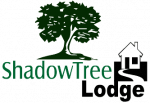When it comes to opening an Adult Foster Care (AFC) home, understanding the Michigan AFC home requirements is critical. These homes serve vulnerable populations—seniors and adults needing care—and ensuring safety, compliance, and compassion is key. Whether you’re starting a facility like ShadowTree Lodge or exploring how to improve an existing one, this guide offers clear, actionable steps to navigate licensing, staffing, emergency planning, and resident care expectations in the state of Michigan.
From regulatory approvals to emergency protocols, every aspect of running a compliant AFC home in Michigan requires detailed attention. In this blog, we’ll explore the full process—offering solutions and best practices—so you can provide exceptional care while staying aligned with state requirements.
Understanding the Licensing Process in Michigan
To operate a licensed AFC home such as ShadowTree Lodge, your journey begins with submitting an application to the Department of Licensing and Regulatory Affairs (LARA). The application process is the first step in complying with Michigan AFC home requirements, ensuring that your facility is safe, well-staffed, and meets all caregiving obligations.
Applicants must pass a comprehensive assessment that verifies the qualifications and capacity of the care provider. All potential caregivers undergo background checks to prevent risks and ensure resident safety. In addition to staffing scrutiny, prospective operators must demonstrate knowledge of Adult Foster care requirements, including compliance with fire codes, structural standards, and resident rights.
Training is equally essential. Before approval, your caregiving team must complete programs designed to prepare them for hands-on care. These certifications ensure a solid understanding of procedures, elder support, and compliance matters. For a more detailed look at the process, you can review state inspection protocols on our site.
Facility Standards and Ongoing Inspections
After your license is approved, maintaining a compliant and safe facility is an ongoing responsibility. Each home must meet the Adult Foster Care Michigan building code standards for structure, fire safety, and resident accessibility. This includes proper exits, emergency lighting, working smoke detectors, and more.
Spaces should be spacious enough for residents to feel comfortable and must be adapted for those with mobility limitations. Inspectors from LARA will conduct routine evaluations to ensure your facility is up to code. These assessments help identify risks, gaps in safety, or non-compliance, which—if left unresolved—could jeopardize your license.
To remain in good standing, keep detailed logs, repair issues promptly, and be prepared for unannounced visits. More information on these ongoing standards can be found in our guide on AFC home licensing requirements.
Staffing and Training: A Cornerstone of AFC Homes
One of the core Adult Foster care requirements in Michigan is proper staffing. The law mandates that staffing levels must be adequate based on the number and needs of the residents. More importantly, each staff member must have the proper training and credentials to deliver high-quality care.
Training topics include:
- Emergency protocols
- Medication management
- Resident rights and confidentiality
- Assistance with daily living tasks (like grooming and feeding)
To truly elevate care, staff should be familiar with specialized support needs, including memory care or mobility assistance. Consider implementing regular workshops and evaluations to maintain a culture of excellence. A great starting point is ensuring your staff understands how to provide assistance with activities of daily living, which is crucial in AFC environments.

Promoting and Protecting Resident Rights
Resident care is not only about physical support—it also includes respect, dignity, and protection of legal rights. Upholding these principles is a key component of Michigan AFC home requirements.
Facilities must ensure:
- Resident privacy during personal care and medical discussions
- Clear and safe complaint procedures
- Timely response to concerns and grievances
- Freedom of choice in daily routines and activities
Residents should feel heard and valued. Foster an open dialogue where they can speak up without fear of retaliation. Your commitment to these values will be reflected in resident satisfaction and family trust. For enhanced well-being, consider integrating faith-based support and community for emotional fulfillment.
Emergency Preparedness: A Legal and Moral Imperative
A well-developed emergency plan can mean the difference between chaos and calm during a crisis. Every licensed AFC home must implement a customized safety plan that meets state requirements.
Key elements include:
- Evacuation routes with maps posted in common areas
- Drills for staff and residents (fire, lockdown, severe weather)
- Communication protocols for alerting families and authorities
- Emergency kits including water, food, and first aid supplies
Don’t underestimate the importance of practicing these drills and updating protocols. It’s part of your responsibility under Adult Foster Care Michigan laws. Incorporating additional senior-focused safety tips can further safeguard residents in unexpected events.
Understanding Financial Considerations
A common question for many is: How much does the government pay for group homes in Michigan? The answer varies based on the level of care provided and resident eligibility.
Typically, funding is facilitated through Medicaid or SSI (Supplemental Security Income) programs, which may cover a portion of housing, meals, and caregiving. The average reimbursement ranges between $900 and $2,500 per month per resident, depending on the care category and eligibility.
To ensure your facility qualifies for funding:
- Stay updated with Michigan’s DHS program changes
- Complete necessary billing and compliance documents
- Maintain transparent records of care provided
You can visit Michigan’s official site on Medicaid AFC coverage to explore up-to-date reimbursement programs and eligibility.
Discover Local Opportunities: Search Homes Near You
If you’re looking to join or explore the list of adult Foster Care Homes in Michigan, there are directories that provide updated options by city, capacity, and care level. Whether you’re a provider seeking networking opportunities or a family searching for care, these lists are invaluable.
Useful directories include:
- Michigan Adult Foster Care & Homes for the Aged Directory
- SeniorHousingNet’s AFC Listings
- A Place for Mom – Michigan Listings
Reviewing these directories can help you see how your AFC home compares and aligns with others in the state.
A Lasting Commitment to Care and Compliance
Running an AFC home in Michigan isn’t just about passing inspections—it’s about creating a safe, warm, and welcoming space that supports dignity, health, and well-being. By meeting all Michigan AFC home requirements, you’re not just complying with the law—you’re elevating the quality of life for those who depend on you.
Whether you’re starting out or refining your current care facility, make sure your practices align with Adult Foster care requirements, maintain your license through regular inspections, and keep your staff prepared. And don’t forget to explore financial support opportunities and be aware of how much the government pays for group homes in Michigan, as this can help sustain your operations.
For more information about how ShadowTree Lodge meets these standards—or to discuss residency or licensing needs—call us at 810-660-7525 or schedule a tour here.
Explore AFC the Right Way—Get Started Today
If you’re ready to learn more or need guidance navigating Michigan’s licensing process, ShadowTree Lodge is here to help. Our team is experienced, compliant, and compassionate—dedicated to improving lives through quality care. Visit shadowtreelodge.com to get started, or call today. Let’s build a better tomorrow, together.
Frequently Asked Questions
Who pays for AFC homes in Michigan?
Adult Foster Care (AFC) homes in Michigan can be paid for through several sources, depending on the resident’s financial situation. Many residents pay privately, while others may qualify for state assistance programs such as Medicaid or Supplemental Security Income (SSI). Some families also help cover costs to ensure their loved ones receive proper care. It’s important to check with the specific AFC home to understand accepted payment options and financial assistance availability.
Who qualifies for assisted living in Michigan?
In Michigan, individuals who need help with daily activities such as bathing, dressing, meals, or medication management may qualify for assisted living. Typically, seniors who do not require constant medical attention but benefit from personal care services are good candidates. Qualification may also depend on financial resources and available state support programs. Each facility may have its own admission criteria, so it’s best to review requirements directly with the community.
What is an AFC home in Michigan?
An Adult Foster Care (AFC) home in Michigan is a licensed residential setting that provides supervision, personal care, and protection for adults who cannot live independently. These homes often serve older adults, individuals with disabilities, or those with mental health needs. AFC homes vary in size, from small family-style residences to larger group homes. They are designed to provide a safe, supportive, and community-oriented environment for residents.
Who regulates AFC homes in Michigan?
In Michigan, AFC homes are regulated by the Department of Licensing and Regulatory Affairs (LARA). This department ensures that AFC providers meet state standards for safety, staffing, and quality of care. LARA conducts inspections and handles licensing to confirm compliance with state regulations. Families can review licensing reports to evaluate the quality and performance of specific AFC homes before making a decision.




